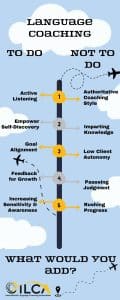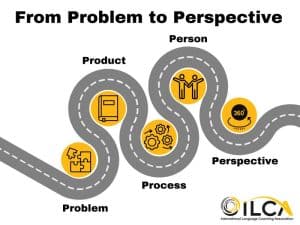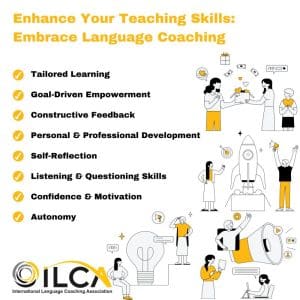by Martin Richards CPPC
In the 1990’s, I taught English to Adults. On one particular course, we had come to the stage where we were comparing the several different past tenses in English. As part of the lesson we had started an activity where the students were writing a short report on what they did, had done, have done, have been doing, were doing, etc.
In order to give the students an interesting context, I told them a story in the role of ‘policeman’, and asked them to write ‘an alibi’. I stood at the front of the room and in a knees-bend, hands behind my back, and theatrical policeman voice, I told them a story. You get what I was doing, don’t you? I included a sense of silliness and seriousness in the story-telling and the students engaged with the scenario of writing an alibi, and were rising to the challenge of the different past tenses. They were discussing the difference between “At 6pm, I was working at my office” or “At 6pm, I worked at my office”. Very productive and useful conversations about the English language. Job done!
A colleague walked past the open door of my classroom and noticed the deep engagement of my students. At the coffee break, she asked me how I had achieved it. She had been struggling to get and hold the attention of her students and felt the need for some advice.
Young as I was, I gave her the advice she asked for and told my colleague exactly what I had done, and I left out the important details. I omitted to tell her that I had a trusting relationship with the adult students, which gave me the opportunity to play the role of policeman, in a joking manner. I simply said, “Oh, I just arrested them and told them to write an alibi for yesterday evening”.
After the coffee break, my colleague went into her class and arrested her students, saying that some books had been stolen from the school and that everyone should write an alibi for yesterday evening. The students responded loudly, some left her course.
Had I known then what I know now, I would have engaged to my colleague in a conversation about what she wanted to experience with her class. We would have explored how she feels when her lessons are going exactly the way she wants them to. From such conversations, I am sure she would have arrived at a strategy that was fully aligned with who she was.
I don’t give advice any more, but I do guide teachers in making their own choices about how to become better teachers. I trained as a professional coach with the Coaches Training Institute, and I work as a Teacher-Coach, coaching teachers.
From “A Coaching Approach to Education” by Martin Richards CPCC, available on Amazon.
Do you have any similar stories of how giving advice is not always the best possible solution to every situation?
We welcome your ideas and questions you may have relating to this theme and will address them on our first free event (we will find a snappy name) held by Martin in January, 2020.
By sending your thoughts in, you will be contributing to the first talk we will have from one of our experts on coaching.

*Martin Richards is an author and inspirational speaker in secondary schools. He is an experienced educator and facilitator who began teaching Mathematics over 30 years ago where he applied a ‘coach approach’ to teaching. He is currently a coach and mentor for teachers, course leaders and coaches in Scandinavia and is passionate about connecting teacher’s purpose with the greater Educational Aims. Martin received his Teacher training at Sussex University and is PGCE Course Certified as ACC coach since 2008, by ICF, International Coach Federation. He also trained as a Co-Active® Coach through CTI, Coaches Training Institute, and ORSC®, Organization Systems and Relationships Coach through CRR Global.
He can be found here: https://www.coaching-for-educators.com/
and here: https://www.linkedin.com/in/coachmartinrichards/






